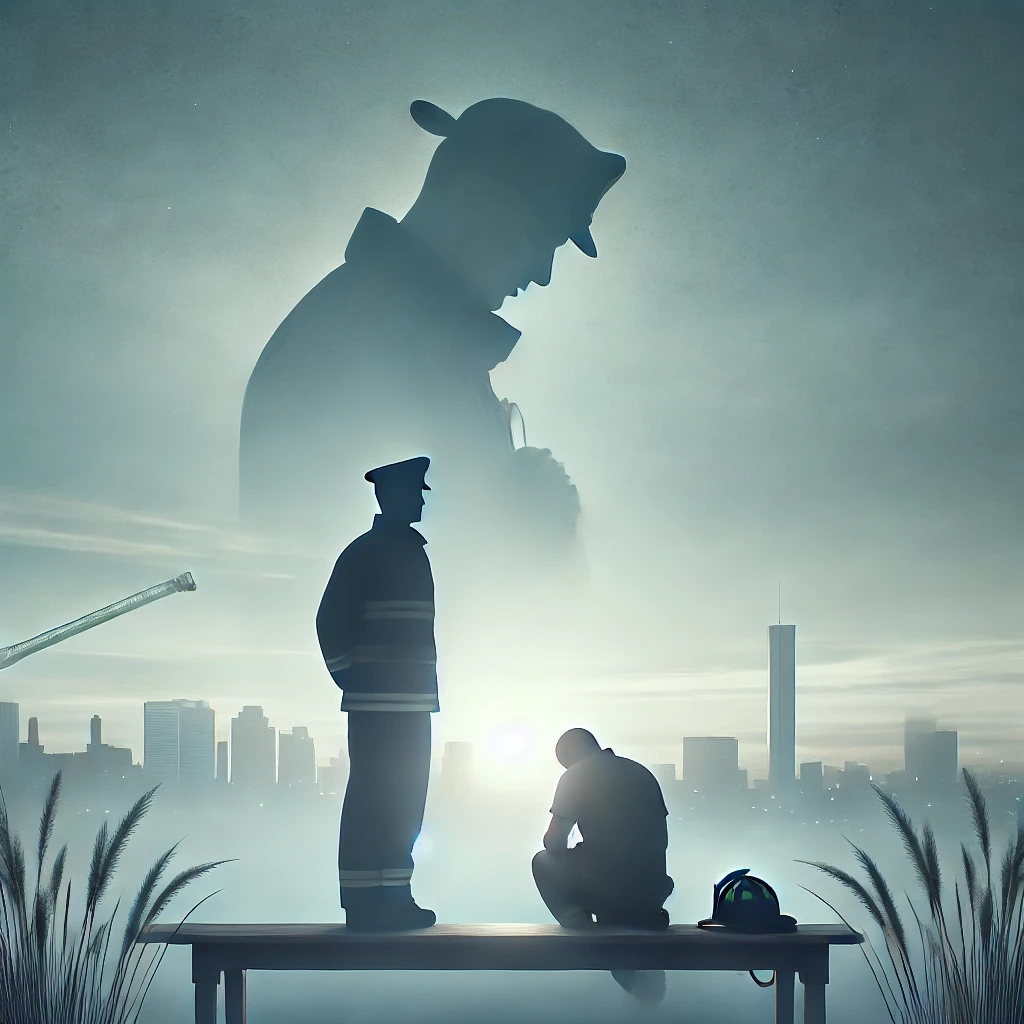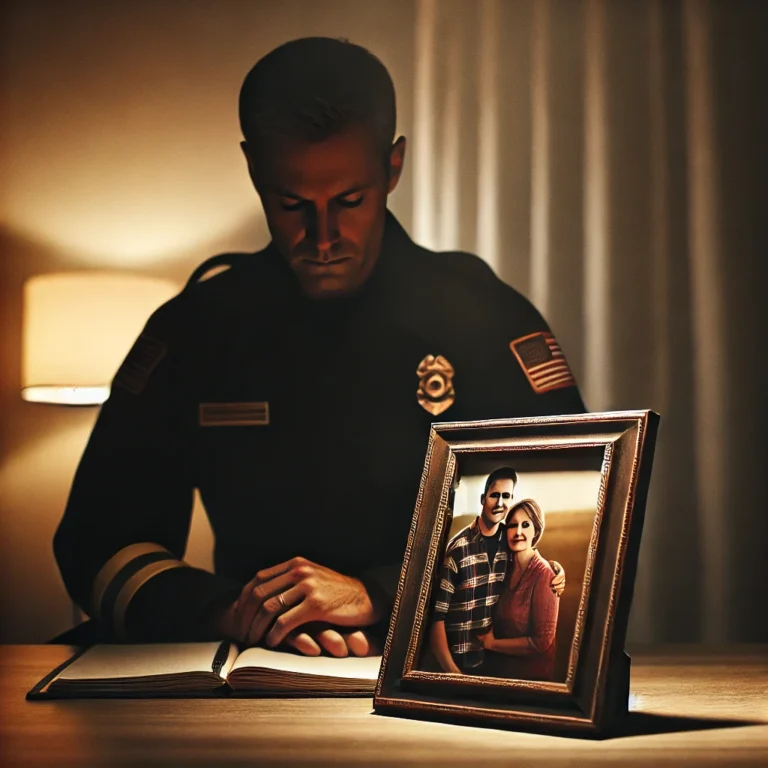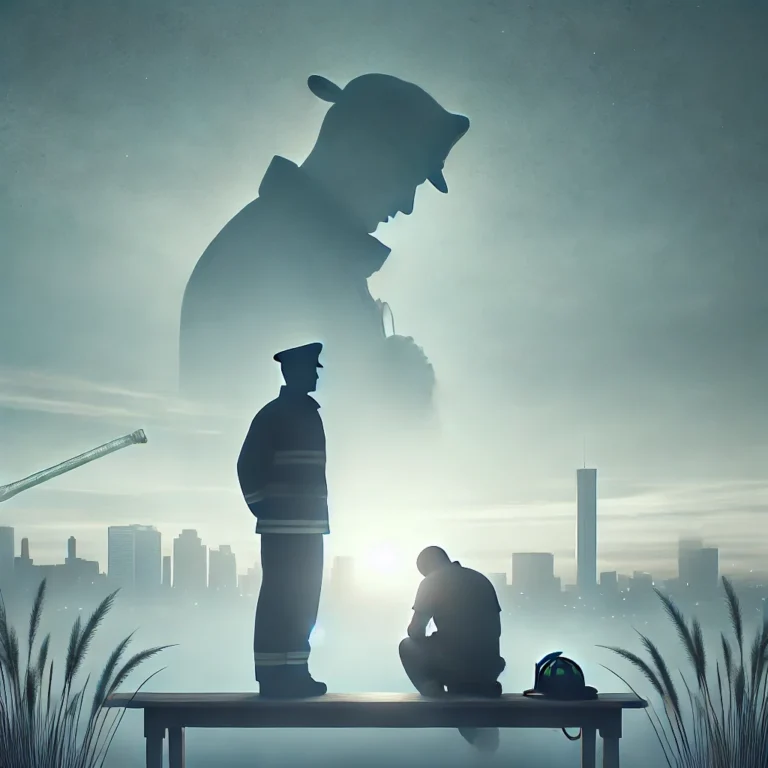
Introduction
Death is an inescapable part of the job for first responders, yet that doesn’t make it any easier to bear. Whether it’s the tragic loss of a coworker, the heart-wrenching death of a victim, or the devastating passing of a child, these experiences weigh heavily on both mind and heart. Navigating grief while continuing to serve isn’t simple, but there are tools and strategies that can help. This post covers practical steps to support you in managing grief, honoring those lost, and finding resilience in the face of tragedy.
1. Allow Yourself to Feel
It’s common to want to “push through” difficult emotions, especially in the fast-paced world of first responders. However, suppressing grief often compounds it. Instead:
- Acknowledge Your Emotions: Recognize your feelings of sadness, frustration, guilt, or even anger. Giving yourself permission to feel these emotions can prevent them from becoming overwhelming later on.
- Take a Moment to Breathe: Simple breathing exercises can help calm your body’s immediate stress response. A few deep breaths, especially after a traumatic event, can ground you and help clear your mind.
2. Seek Peer Support
Other first responders understand the unique challenges and experiences that come with the job. Leaning on each other for support can create a powerful sense of solidarity:
- Debrief Together: Many departments offer structured debriefings. If one isn’t available, consider gathering with a few trusted colleagues. Sharing stories and listening to each other can alleviate feelings of isolation.
- Peer Support Programs: If your department has a peer support team, use it. Sometimes, talking with someone who has been through similar experiences can be profoundly healing.
3. Connect with a Mental Health Professional
Seeking professional help is a proactive way to cope with grief. Therapists specializing in trauma or those who understand the unique challenges of first responders can provide essential guidance:
- Critical Incident Stress Management (CISM): This is a structured approach that many departments use. A CISM session can help prevent long-term emotional impact from traumatic incidents.
- Therapy Options: Cognitive-behavioral therapy (CBT) and Eye Movement Desensitization and Reprocessing (EMDR) are effective for processing trauma. If these are available, they can be valuable tools in managing grief.
4. Honor the Loss in Personal Ways
Creating small rituals to remember those who have passed can be a meaningful way to process grief:
- Moment of Silence: Take a few moments at the end of a shift to reflect quietly on the individual. This small act can bring a sense of closure.
- Create a Memorial: Whether it’s a note, a photo, or something symbolic, a personal tribute can help you express your emotions and respect those lost.
5. Recognize and Address Signs of Burnout
Repeated exposure to trauma can lead to burnout, particularly if grief goes unaddressed. Staying aware of your emotional health is crucial:
- Check for Signs: Difficulty sleeping, irritability, and withdrawing from others are common signs of burnout. If you notice these, take action—whether that means taking time off, seeking support, or engaging in self-care.
- Engage in Activities You Enjoy: Sometimes, simple joys—a hobby, time with family, or even a favorite meal—are restorative. Small acts of self-care remind you there’s life outside of trauma and loss.
6. Take Care of Physical Health
Grieving takes a physical toll, often reducing sleep quality and affecting appetite. Attending to physical health can help counteract some of the stress’s effects:
- Regular Exercise: Physical activity releases endorphins, which are natural mood lifters. It doesn’t need to be intense—even a short walk can make a difference.
- Prioritize Sleep: Quality rest is essential for emotional processing and mental clarity. When sleep becomes difficult, try relaxation techniques before bed, like deep breathing or progressive muscle relaxation.
7. Coping with the Loss of a Child Victim
Losing a child victim often feels particularly painful, given the inherent innocence and potential of young lives. When this happens:
- Talk with Trusted Colleagues: Many responders find talking through the experience with someone who understands makes the pain easier to bear.
- Consider Professional Support: Child fatalities can be especially hard to process. A therapist can guide you through the complex emotions and reactions unique to this type of loss.
Conclusion
Grief is never easy, but it’s a journey that first responders don’t have to face alone. Whether it’s seeking peer support, professional help, or practicing small acts of self-care, each step you take contributes to emotional resilience. Remember, honoring your own feelings and taking the time to process loss is not only essential for your own well-being—it’s also vital to continue serving others with strength and compassion.




